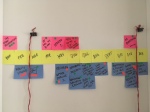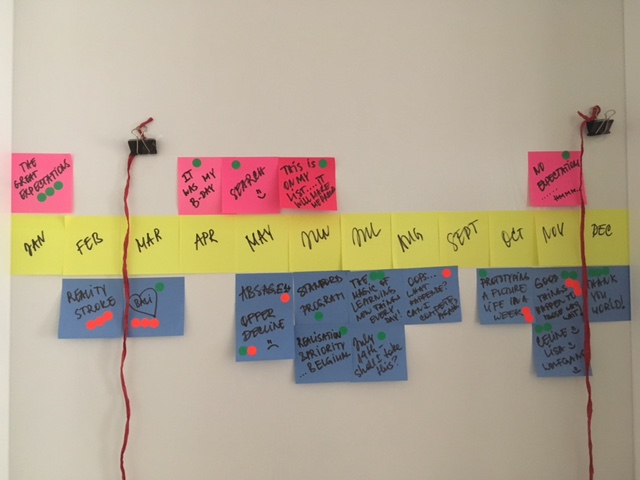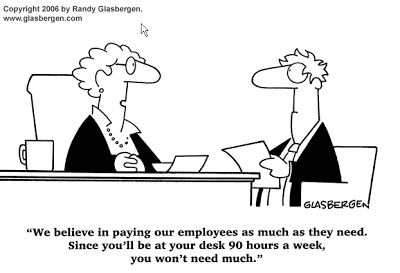 We often believe that it’s the others who are richer, smarter, luckier and above all happier than us. The truth is we all have our struggles, big and small, desperate and ephemeral on a daily basis. No one has figured it out 100%, although many pretend to have done so. In these series of very short portrait descriptions I will tell the stories of ordinary people I have met throughout my travels around the world. These encounters have helped me put things into perspective on my own life. These are real people with real stories, nothing is imagined. So, next time when you look at your life and think about the things you’re struggling with, remember, everyone has his/her own battles to fight and nothing is so bad after all.
We often believe that it’s the others who are richer, smarter, luckier and above all happier than us. The truth is we all have our struggles, big and small, desperate and ephemeral on a daily basis. No one has figured it out 100%, although many pretend to have done so. In these series of very short portrait descriptions I will tell the stories of ordinary people I have met throughout my travels around the world. These encounters have helped me put things into perspective on my own life. These are real people with real stories, nothing is imagined. So, next time when you look at your life and think about the things you’re struggling with, remember, everyone has his/her own battles to fight and nothing is so bad after all.
Portrait 28: Meet Jaime, security analyst, lives in Miami
Jaime is an American, born to a Venezuelan father and a Polish mother. He works 3 jobs to put his son and daughter through college. He loves to go back to Venezuela and live there. “Many Venezuelans will give an arm and a leg to be in your place and have the opportunity to leave Venezuela, get an American citizenship and live in the US .” I said. “I know…” responded Jaime. “…but this is how I feel.” “The grass on the other side is always greener“, I thought…”and how in the world is it even possible that someone wants to voluntarily move from the US to Venezuela? Even Cubans don’t want to go to Venezuela these days….”
Portrait 29: Meet Juan, restores old homes, lives in Miami
Juan is in his late 50s with tired eyes and somewhat happy smile. He is Cuban and moved to the US 6 years ago to earn money and send back home. “So, how is your life here?”, I asked. “I wake up every day with the thought of Cuba. I saved some money, built a house in Matanzas, now I’m saving to buy some home appliances and buy a car. When I’m done, I will go back for good. I also have a second home that I would like to rent to folks who work in Varadero…” he paused and added….”I thought the grass was greener here, but it is not. It is almost time for me to go back. ”
Portrait 30: Meet Fernando, wants to start his own business, lives in Miami
Fernando arrived in Miami two months ago from Uruguay and is ready to put all the effort to achieve the American dream. “What means the American dream to you?” I asked. “I want to save some money, go back to Uruguay and start my rental car business with a friend.” Why can’t you do it now?” “Well, you know, I need to make some money first and have some capital t start with, so that I can reinvest…In this country [the US] everything is possible.“

 We often believe that it’s the others who are richer, smarter, luckier and above all happier than us. The truth is we all have our struggles, big and small, desperate and ephemeral on a daily basis. No one has figured it out 100%, although many pretend to have done so. In these series of very short portrait descriptions I will tell the stories of ordinary people I have met throughout my travels around the world. These encounters have helped me put things into perspective on my own life. These are real people with real stories, nothing is imagined. So, next time when you look at your life and think about the things you’re struggling with, remember, everyone has his/her own battles to fight and nothing is so bad after all.
We often believe that it’s the others who are richer, smarter, luckier and above all happier than us. The truth is we all have our struggles, big and small, desperate and ephemeral on a daily basis. No one has figured it out 100%, although many pretend to have done so. In these series of very short portrait descriptions I will tell the stories of ordinary people I have met throughout my travels around the world. These encounters have helped me put things into perspective on my own life. These are real people with real stories, nothing is imagined. So, next time when you look at your life and think about the things you’re struggling with, remember, everyone has his/her own battles to fight and nothing is so bad after all.

 We often believe that it’s the others who are richer, smarter, luckier and above all happier than us. The truth is we all have our struggles, big and small, desperate and ephemeral on a daily basis. No one has figured it out 100%, although many pretend to have done so. In these series of very short portrait descriptions I will tell the stories of ordinary people I have met throughout my travels around the world. These encounters have helped me put things into perspective on my own life. These are real people with real stories, nothing is imagined. So, next time when you look at your life and think about the things you’re struggling with, remember, everyone has his/her own battles to fight and nothing is so bad after all.
We often believe that it’s the others who are richer, smarter, luckier and above all happier than us. The truth is we all have our struggles, big and small, desperate and ephemeral on a daily basis. No one has figured it out 100%, although many pretend to have done so. In these series of very short portrait descriptions I will tell the stories of ordinary people I have met throughout my travels around the world. These encounters have helped me put things into perspective on my own life. These are real people with real stories, nothing is imagined. So, next time when you look at your life and think about the things you’re struggling with, remember, everyone has his/her own battles to fight and nothing is so bad after all.




 , which were largely positive and then I mapped what actually happened
, which were largely positive and then I mapped what actually happened  – sometimes positive, sometimes negative, sometimes both. And it is not strange that some experiences are both positive and negative, because we experience in multifaceted ways with all of our senses. When a crisis struck, I felt miserable, I felt more miserable… and then I moved on. And then good things happened. I marked with red (negative) and green (positive) dots the intensity of the expectations and how vividly I remembered what happened: the more dots,the higher the intensity. Don’t underestimate the expectations: they tend to shape a lot of our journeys. Mark with red strings the “moments that mattered most to you”- chances are they shaped you and will be remembered for some years to come. This is what your “remembering self” got out of 2016.
– sometimes positive, sometimes negative, sometimes both. And it is not strange that some experiences are both positive and negative, because we experience in multifaceted ways with all of our senses. When a crisis struck, I felt miserable, I felt more miserable… and then I moved on. And then good things happened. I marked with red (negative) and green (positive) dots the intensity of the expectations and how vividly I remembered what happened: the more dots,the higher the intensity. Don’t underestimate the expectations: they tend to shape a lot of our journeys. Mark with red strings the “moments that mattered most to you”- chances are they shaped you and will be remembered for some years to come. This is what your “remembering self” got out of 2016.